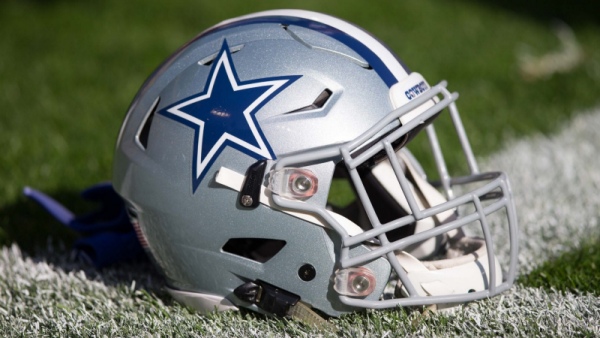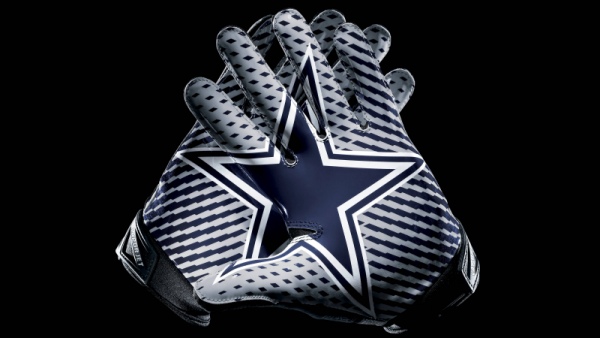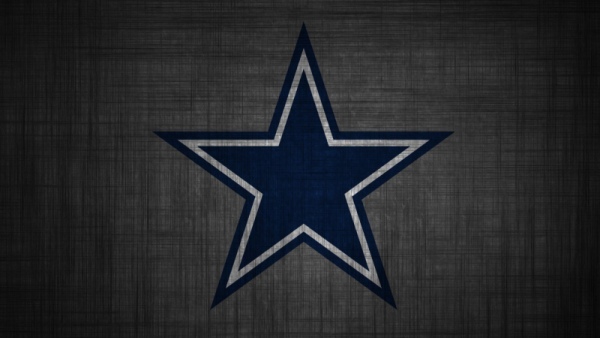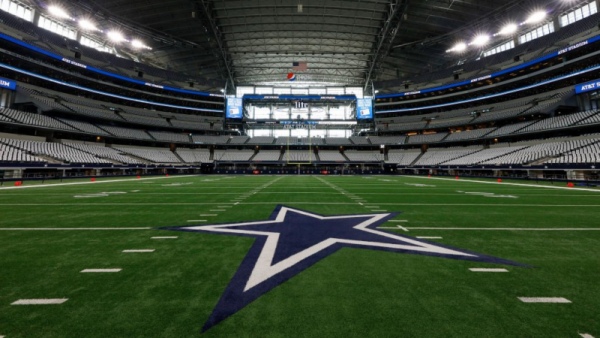One of the issues that are constantly limiting the Cowboys overall talent level is cap mismanagement, a combination of excessive contracts and dead money. Both issues are obviously related.
Eventually, Cowboys management realizes that a player is not performing to the level expected from his salary. When it reaches a level that detriments the ability of the Cowboys to acquire competitive talent, they are forced to compromise by cutting the player and taking a "dead money" hit on their cap.
Currently, a little over ten percent of this year's cap went the way of dead money. The Cowboys are still responsible for a proportion of salaries belonging to players like Jaylon Smith, a 6.8 million dollar hit this season as well as 6 million for Amari Cooper, 5.9 million for La'el Collins, and even 2 million for Blake Jarwin.
Then you combine that with the fact that the Cowboys top 6 salaries account for 42 percent of the entire cap this season, one of the highest in the league. Playoff teams from last season like the Bengals and Bills use from 27 to 31 percent of this years cap for their top 6 players.
These high contracts did not even need to happen in some cases. Some were caused by Jerry Jones negotiating tactics. He tried to play hardball with some players and it slowed down the process to the point where contracts from other teams drove the asking price higher.
I have made a list of practices for a strategy in which the Cowboys control their cap and field a competitive team where the salaries are more spread out and positions can be manned by a starter and a backup to where there is not a large drop off in talent when the backup has to be used.
1. With only two exceptions, never draft a skill player or defensive back in the first round, especially in the top ten.
What is the "best" scenario? That player turns out to be "elite" and you have to destroy your salary cap in order to keep him beyond his first 4-5 seasons.
I'm talking about quarterbacks, receivers, RB's TE's and cornerbacks. I'm also going to throw EDGE rushers in there. many of them get paid far too much for the 8-12 plays that they make every season, many of them irrelevant.
One of the two exceptions are when you can get a "generational" player. The difference between an "elite" player and a "generational" player is an elite player is one of the best at their position at a particular point in time. However, based on perception, there could be a half dozen "elite" players for that position in the NFL. Why would you dedicate such a large, disproportional salary to a player when a quarter of the league has one with identical talent level?
A "generational" player goes beyond elite, it even goes beyond the HOF, . A "generational" player is one that you will only see once in a 15 to 20 year span. They define their position, historically.
A "generational" WR is Jerry Rice, Randy Moss, and Bob Hayes. They defined the position at the time of their careers. A generational linebacker is Dick Butkus, Lawrence Taylor…..and Micah Parsons, perhaps?
The 2nd exception is when you find a quarterback you believe is the perfect fit for your offense. This would usually be a top 5 pick. Notice I didn't say "franchise" quarterback. That concept has to disappear as well as many other perceptions.
2. Always attempt to trade down with the 1st pick. What you want is a much larger pool of 2nd and 3rd round picks. Rather than draft a player in the 1st round that you will eventually have to pay large or cut, you get two or three potential players that provide better competition and depth. It is also more likely that you will be negotiating more reasonable contracts.
You may be thinking that this will create a drain on overall talent but I disagree. You will get great talent and it will be more evenly distributed.on the team. I agree that you can't base a player's talent level entirely on draft position, but you can consider it as a general rule. In most cases when you look at statistical rankings the top 10 players are around 60 to 80 percent 1st rounders, perhaps 10 to 30 percent 2nd rounders and the rest a smattering of other draft rounds with an occasional undrafted free agent.
Again, generally speaking, would you prefer your three starting receivers to be a top ten #1 draft pick, a 4th round pick and a 7th round pick or would you want a grouping of three WR's drafted in the 2nd, 3rd, and 3rd respectively? would you want their backups to be 6th or 7th round picks and an undrafted rookie free agent or would you rather they are a 3rd, 4th or 5th pick?
When trading down you should always attempt to acquire future value. For a decade, the Patriots used this method to acquire future 1st round picks that they would trade. There was a seven-year period where they had drafted about 12 second rounders and 10 third rounders. This also meant they had a much larger margin of error, a bust would not be as devastating overall. All teams have busts, even good ones
3. Never discuss a players talent level with the media. Understand that individual awards given to a player on your team detriments the strength of your team.
Let me explain. When a coach or GM used words like "elite", "future Hall of Famer", "greatest", "#1 receiver", and "Pro Bowler", he just raised the price of his own player without any competition from other teams. These are the words that an agent will fire back at you during the negotiation process.
Never seek attention for your players. When necessary to speak about them, indicate that you are pleased with their performance and congratulate them on individual awards. Always use as few words as possible. There will be plenty of accolades for that player, it is not necessary for a GM or coach to elaborate.
Individual awards are not a good thing from the perspective of a GM. They may cause a player to lose focus, or decrease the intensity of their preparations. Sometimes it causes internal strife among the players who feel snubbed. Again, there is also the issue of contract negotiations.
Individual awards don't contribute to championships, teamwork does.
4. Unless you get a top five pick that coincides with the acquisition of an excellent QB prospect, draft a quarterback every three to four seasons in the 2nd or 3rd rounds. This is the 2nd tier of QB talent in the NFL. These are the Drew Brees, Derek Carr, Russel Wilson, Bret Favre, and Ranal Cunningham type players.
By drafting a quarterback every three seasons in a top round you are assured of good competition, less cap issues, and a less significant change in talent level should your starter go down. It also provides great leverage in contract talks.
5. Never draft a player with a history of injuries and never draft one that is injured during the time of the draft. The risk is too high, players that get injured becomes more vulnerable at the area of the injury. Above all, don't gamble when it comes to the draft. treat college injuries as a red flag.
Never draft for "potential". Never draft "raw" players. The lower you draft, the more you should require a larger body of work in college. Below the 3rd round you should be looking for about 3 years of college starts.
Never draft or sign a player strictly as a special teamer. They should all show potential for being a starter at some point.
When it comes to 2nd contracts, be proactive and be fair. Offer the price that accurately represents that player's contributions to success.
Accurately evaluate the level of talent and player's ability to contribute and base the contract on that alone. Never negotiate. There is no need if you are confident in projecting their future contributions.



